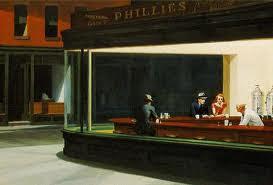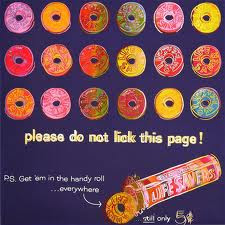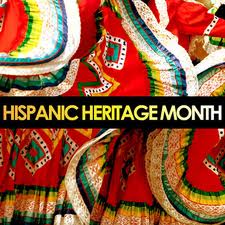Urban Tide
Saturday, May 5, 2012
Life & Death in the Spotlight
In the wake of Junior Seau's suicide this past Wednesday, the complexity of mourning and paying homage in the digital age has really struck me. I don't mean to sound cold. His death is a huge loss to both his family and to all of us. I never met him, but I'm beginning to understand the impact he had on San Diego. But to my original point, when people post their condolences on Facebook, are they genuinely supportive? If Facebook or Twitter didn't exist as media, would we speak our words to the world or just to those who had lost most? There seems to be a divide between action (or reaction) for personal benefit and action for personal support. For those of you who honestly care about the lives and happiness of the Seau family, why do you post it on Facebook? Is it because you want everyone else to know that you care or because you want the Seau's to know you care? In either situation, it seems to be about you more than about the Seaus' loss. What does anyone gain from it being so public? Especially when the circumstances of the life and death have been so public. In a world that is so devoid of meaning, why are we diluting the little meaning we have left in life? When three hundred people post on Facebook about how they all feel a deep loss, is that really more meaningful than one family member of the lost person posting? It's worth thinking about it, if only to me. Maybe the reaction fits the circumstances. Junior Seau was an oversized presence in San Diego, clearly adored by the community. His memorial service, at least the public one, will be held in the megalithic Qualcomm Stadium. His face, pictures of his immediate and extended family, action photos of his NFL career are likely to be posted all of the walls and then on Facebook once more. Now I understand that holding in the emotions that this suicide could've caused isn't a good thing either. But is making several hundred of your friends and acquaintances aware of the pain any more satisfying. If you were the only posting about it, maybe it would be satisfying or even relieving, cathartic. But from the outside, it seems much more empty to see so many condolences. Impressive, but empty. Like being read a cemetery epitaph several hundred times without context. And from what I've seen, context and memories come infrequently.
Wednesday, September 21, 2011
American Regionalism
From Wikipedia:
In Grant Wood's pamphlet Revolt Against the City, published in Iowa City, 1935, he asserts that American artists and buyers of art were no longer looking to Parisian culture for subject matter and style. Wood wrote that Regional artists interpret physiography, industry, and psychology of their hometown, and that the competition of these preceding elements creates American culture. He wrote that the lure of the city was gone, and hopes that art of the widely diffused "whole people" would prevail. He cites Thomas Jefferson's characterization of cities as "ulcers on the body politic."
Hispanic Heritage Year?
Hispanic Heritage Month covers the month between September 15 and October 15. It is meant to commemorate the many contributions of Latino and Hispanic peoples in both the United States of America and more generally in North America.
I wonder if we really need the federal government to tell Southern California to celebrate Latin American culture. I feel like a lot of our lives our spent under the influence of this cultural vibrancy, whether in our architecture, our food or our history.
While Hispanic as an ethnicity projects an image of minority-status, the growing prevalence of Latino peoples in Southern California and more broadly the Southwestern United States is unmistakably significant. It is all around us. So do we really need to celebrate something that is so common and accessible?
If the goal is greater understanding, then maybe there is purpose in celebration. But that should be made clear. Celebrating for the sake of celebrating doesn't make much sense.
Subscribe to:
Comments (Atom)






